Emigrate to Tunisia
Emigrate to Tunisia: Find out the most important information for your stay here
Tunisia, a North African country bordering both the Mediterranean and the Sahara, offers numerous cultural and historical attractions. In the capital Tunis, the Bardo Museum presents an impressive collection of archaeological finds, ranging from Roman mosaics to Islamic art. The medina of Tunis is home to the imposing Ez-Zitouna Mosque and a lively souk. At the archaeological site of ancient Carthage, east of Tunis, visitors can see the remains of the Baths of Antoninus Pius and other ruins, while numerous artifacts are on display at the National Museum of Carthage. For people looking to emigrate to Tunisia, the country offers a rich cultural experience and diverse historical treasures.
Facts about Tunisia
Capital City
Tunis
Population
12.36 million
Surface Area
101,662.54 mi² or 163,610 km²
Continent
Africa
Official Language
Arabic
Currency
Tunisian dinar (TND)
Emigrating to Tunisia: An overview of the political system
Tunisia's political system is defined by the Constitution of the Republic of Tunisia, which was adopted in January 2014. This system was created by the revolution of 2010/2011, which led to the flight of the then President Ben Ali. Prior to this, Tunisia was ruled by Ben Ali, who had been in office since 1987, and before that by state founder Habib Bourguiba following independence from French colonial rule in a largely authoritarian and dictatorial manner, each under the dominance of their respective parties. Today, Tunisia is a pluralistic democracy with free elections and a semi-presidential system of government. In this system, the President of the Tunisian Republic and the unicameral parliament, the Assembly of People's Representatives, exercise mutual control.
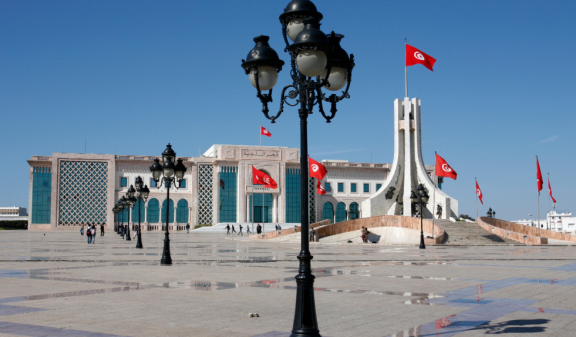
Climate in Tunisia: Important information for emigrants
Tunisia's climate varies depending on the region. From north to south, it becomes increasingly hotter and drier. The north is dominated by a Mediterranean climate with dry, warm to hot summers. Rainfall occurs mainly in winter, when temperatures drop to highs of between 10 and 15 degrees Celsius. In the interior of the country, on the border with Algeria, is the Atlas Mountains, which are characterized by a continental climate with strong temperature differences between day and night and throughout the year. The northern side of the mountains receives the highest rainfall in the country, with up to 1500 mm per square meter annually. At altitudes above around 800 meters, it can also snow in winter. Southern and central Tunisia have a dry desert climate with considerable temperature differences between day and night and between summer and winter.
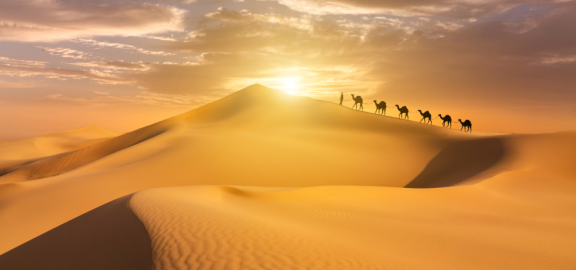
Healthcare system in Tunisia: Important facts for emigrants
The Tunisian healthcare system is based on the structures introduced during the French protectorate. Today, Tunisia's healthcare system is one of the best on the African continent, but is not comparable with the systems in Central European countries. The basis is formed by around 2000 state health centers in which doctors from various disciplines offer mainly outpatient treatment. All Tunisians are covered by a public health insurance scheme that is in principle free of charge. A major problem is the high outflow of medical staff abroad or into the private sector, as well as the sluggish modernization of state healthcare facilities.
In contrast, the private healthcare sector in Tunisia has developed strongly in recent years, both in the area of medical specialists and in medical tourism. Tunisia is now one of the leading providers of eye operations, hair transplants and cosmetic surgery.

Emigrating to Tunisia: An overview of the economic situation and quality of life
In 2023, Tunisia's gross domestic product per capita amounted to around 4,191.63 US dollars. The Gini coefficient of wealth describes the distribution of wealth. The indicator is an established, internationally comparable measure of wealth inequality. It is measured on a scale from zero to one. The higher the value, the greater the inequality. The Gini coefficient in Tunisia is expected to be 0.31 in 2024 (source: Statista).
The living situation of Tunisians has improved in some respects in recent decades. Almost the entire population now has access to clean drinking water and electricity, and a broad middle class has emerged. However, the prosperity achieved to date is unevenly distributed. The regions in the interior of the country in particular are not yet benefiting sufficiently from this development. The hopes for better living standards and more social security and justice that were associated with the 2011 revolution have not yet been fulfilled for many inhabitants. For people who want to emigrate to Tunisia, it is important to take these social and economic differences into account and to inform themselves well in order to make an informed decision.
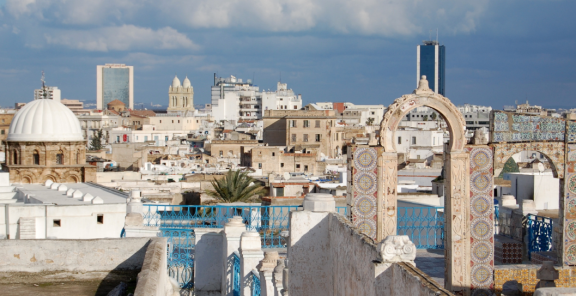
National holiday
Independence from France
A vibrant celebration of the Moroccan monarchy, culture and traditions
Scenery as if from another planet
The moon-like landscape in southern Tunisia is simply fascinating: endless deserts and huge salt pans stretch between the Dahar Mountains in the east and the Algerian border in the west. This is where director George Lucas found the perfect locations for the desert planet Tatooine from the Star Wars films. Many of the film sets can still be visited today.
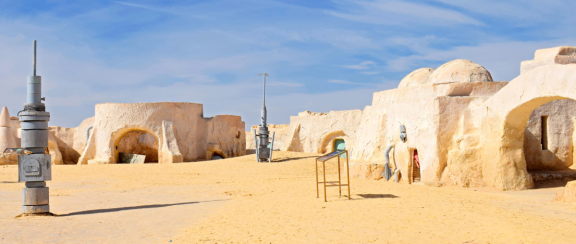
Emigrate to Tunesia - Entry Requirements
Entry is possible for German nationals with the following documents:
- Passport: Yes
- Temporary passport: Yes
- Identity card: Yes, with restrictions (see note)
- Temporary identity card: No
- Children's passport: Yes
Note:
Travel documents must be valid for at least six months at the time of entry.
Entry with only a German identity card is only possible if a package tour has been booked and entry is by air. Booking documents for outbound and return flights as well as the hotel booking confirmation must be carried for the entire duration of the stay.
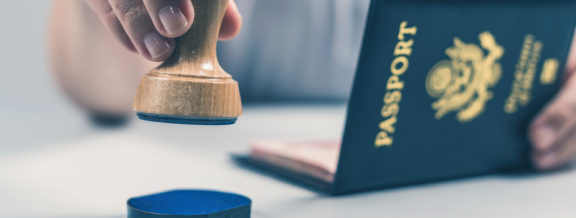
FAQs for emigrating to Tunisia
Where can I find relevant information about my country of entry and the entry regulations that apply there?
We have compiled destination country information as well as entry requirements and customs information for many countries in the Relocation Service section of our website and are constantly expanding this section.
Can I use my own container that I already own for the move with DACHSER & KOLB?
For every removal, which we at DACHSER & KOLB always offer as a door-to-door (full service) removal, a container is rented for the duration of the removal. We therefore do not offer the option of using your own container.
Who is responsible for my move abroad and the services I need there?
As a FIDI member, we work abroad with selected, long-standing partners who work in accordance with our service standards.
Are my removal goods insured in the event of damage?
For every overseas move, we naturally cover transportation insurance at current value for the used household goods and personal belongings
What types of transportation do you offer for overseas relocation?
It is generally possible to carry out overseas removals via air freight or sea freight. In the case of sea freight, it is possible to ship the removal goods as additional cargo (“LCL shipment” with Liftvan) or with a container (FCL shipment in 20 feet, 40 feet or 40 feet high cube). We will be happy to discuss which option is best for you in a personal consultation.
When and how must the move be paid for and what is the payment deadline?
You will receive an invoice a few weeks after placing the order and pay the full amount directly in advance.
Do I have to pay taxes and customs duties on my removal goods?
Removal goods can be imported tax and duty-free into most countries if you have a valid residence permit. We will be happy to check the options for importing the removal goods for your desired destination country in a personal consultation.
Are you interested in moving to Tunisia or another destination country?
Then do not hesitate and contact us today.
Alexander Brugger
Teamlead Customer Service & Sales - AIR&SEA



